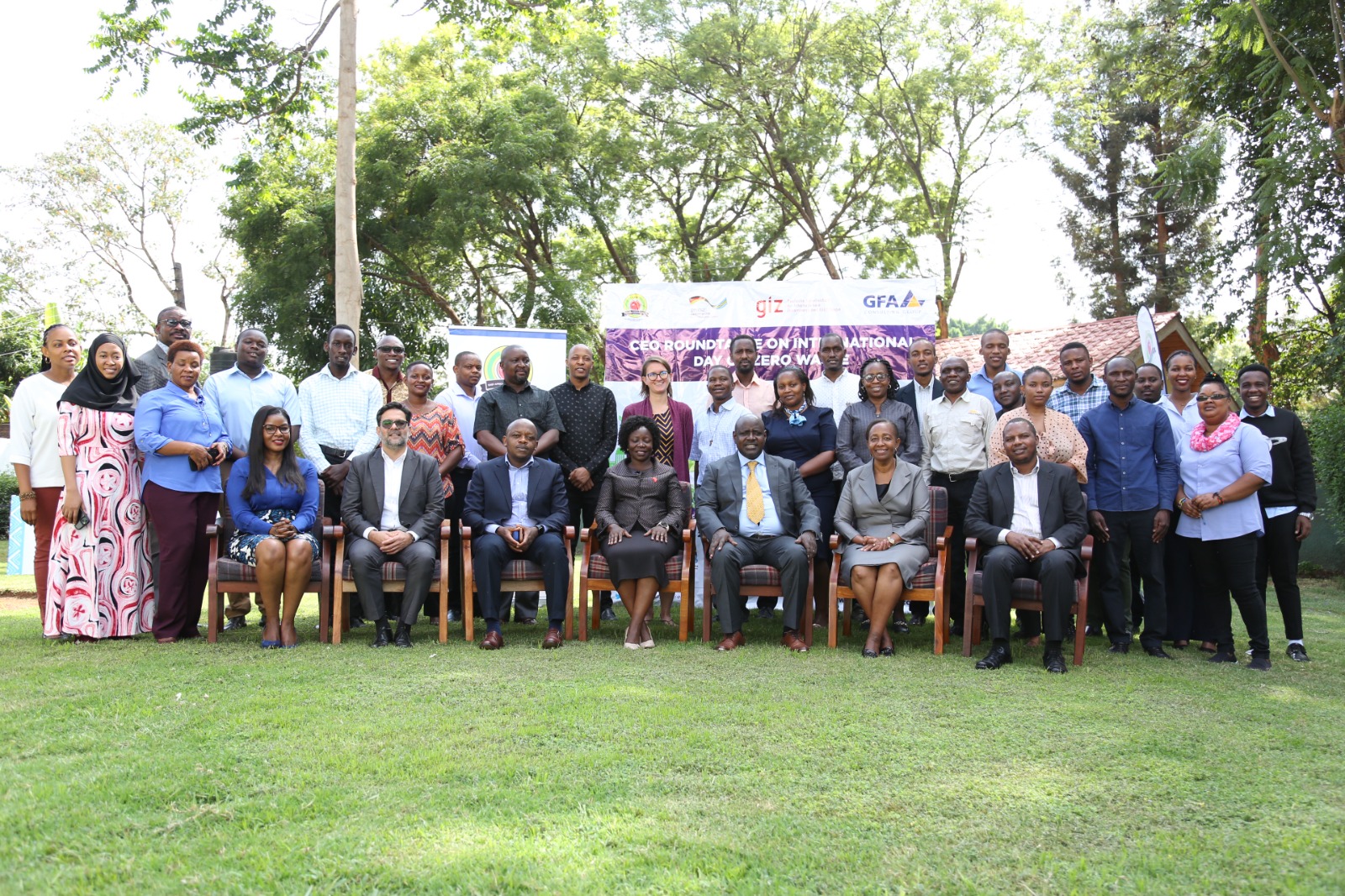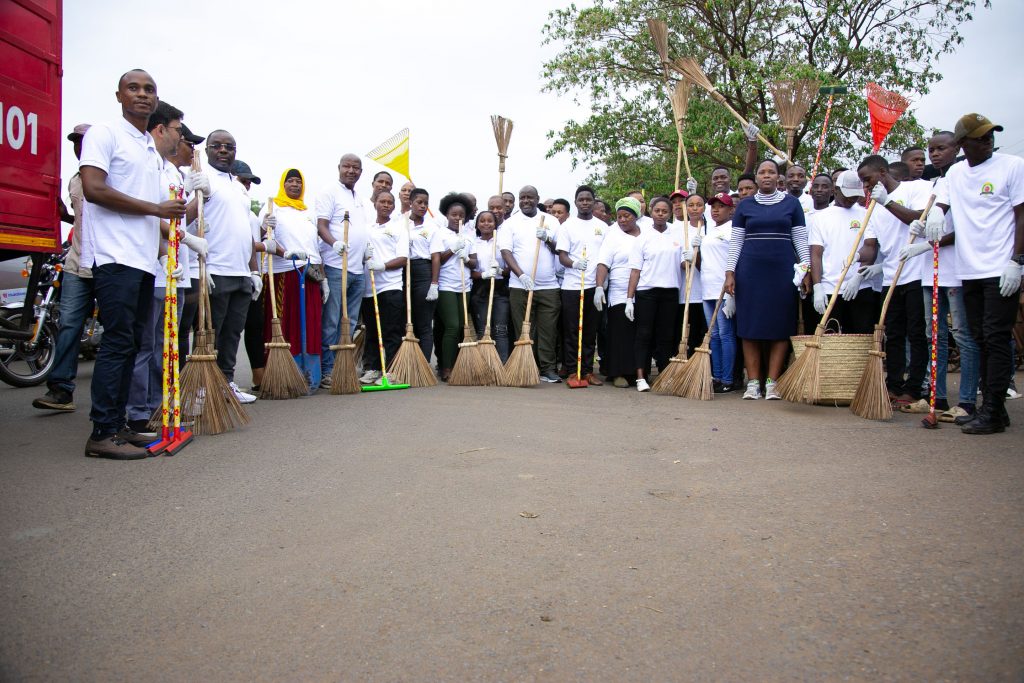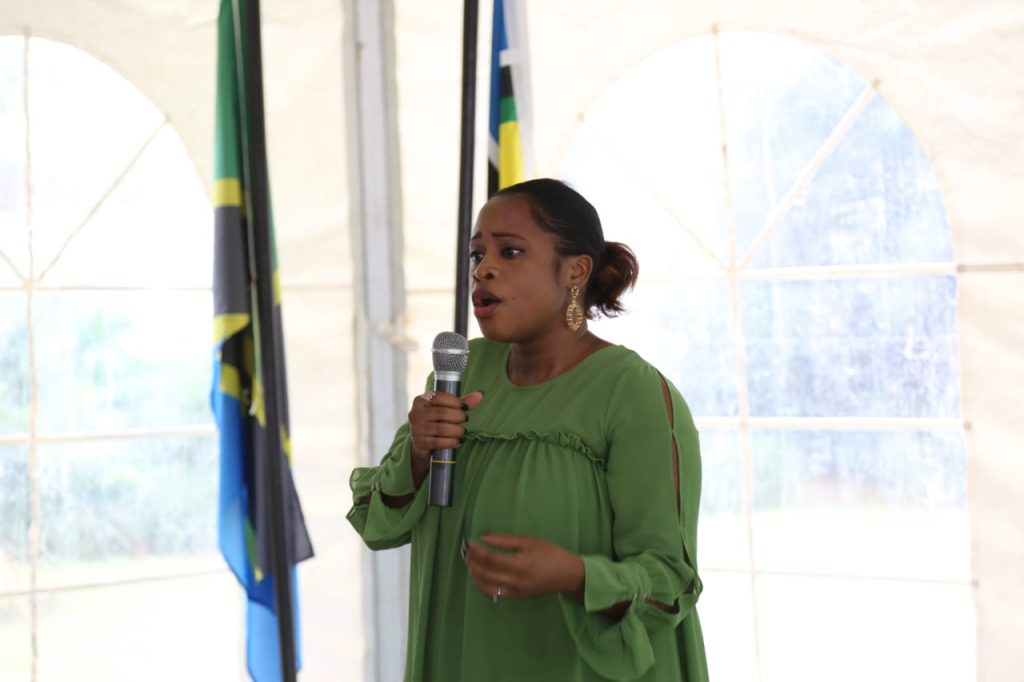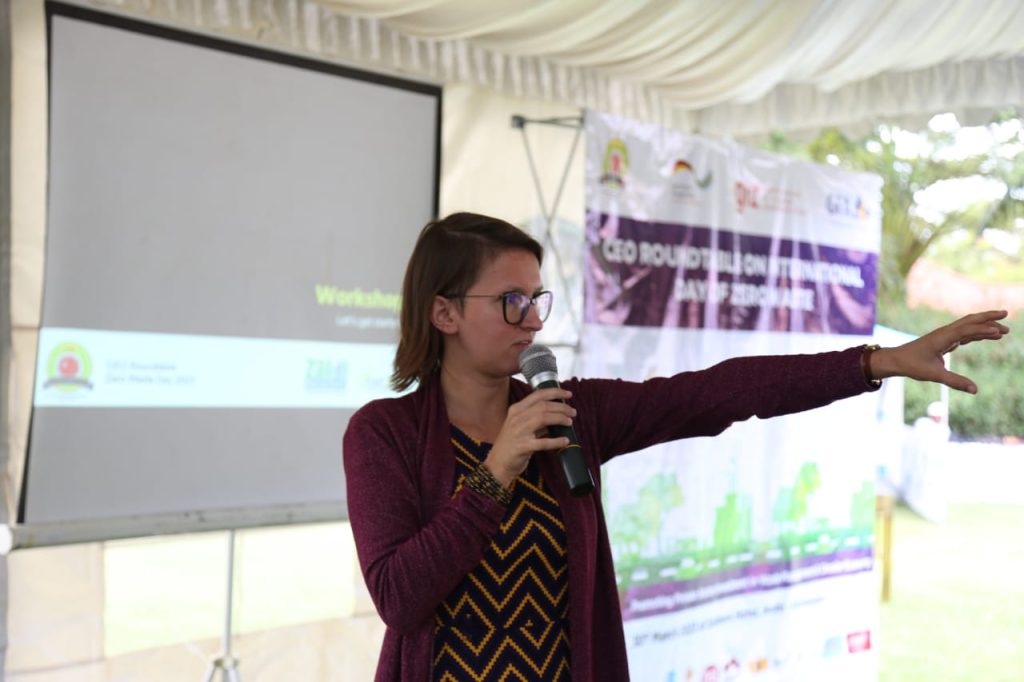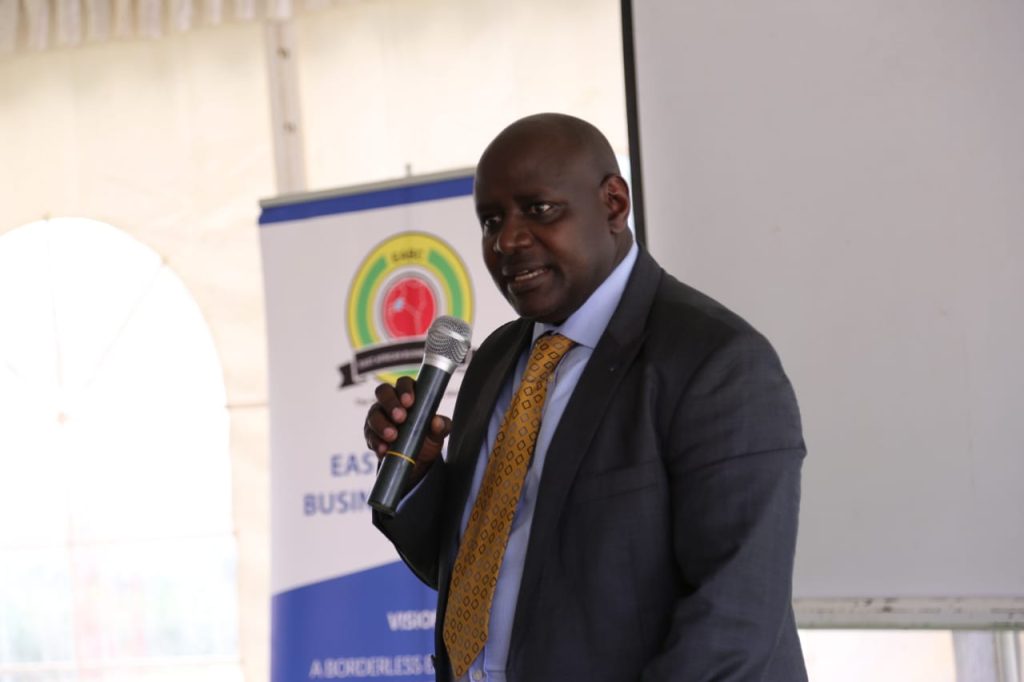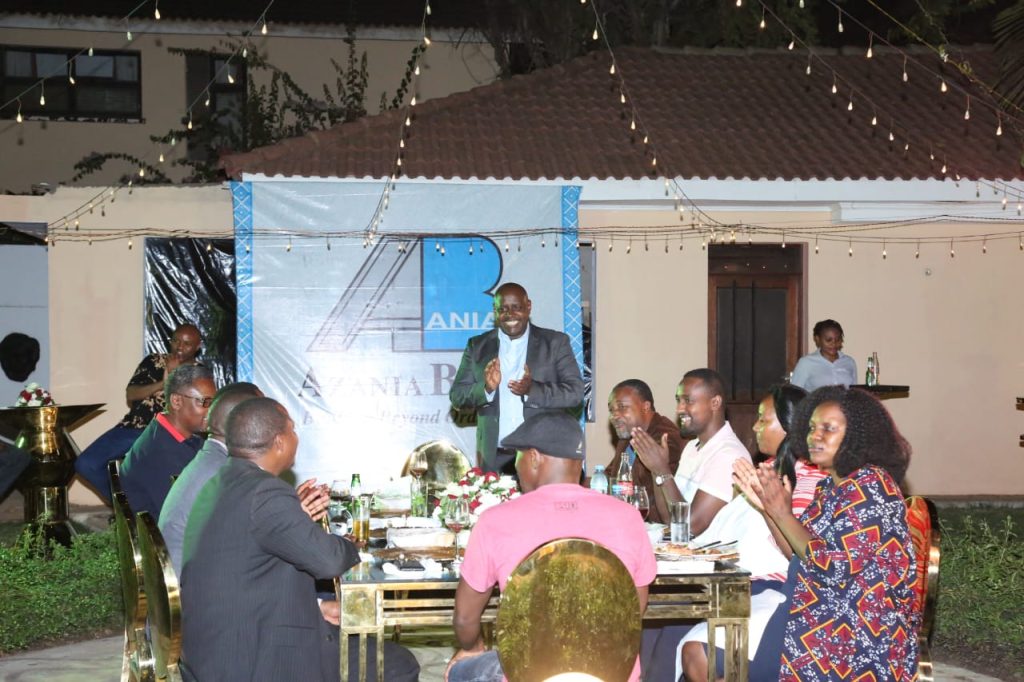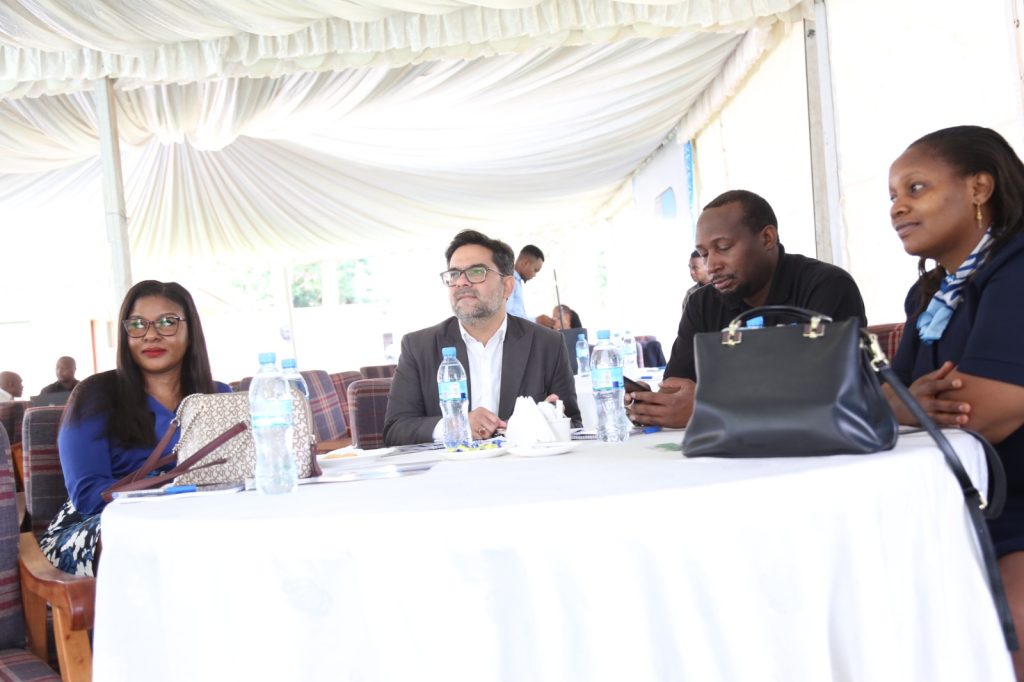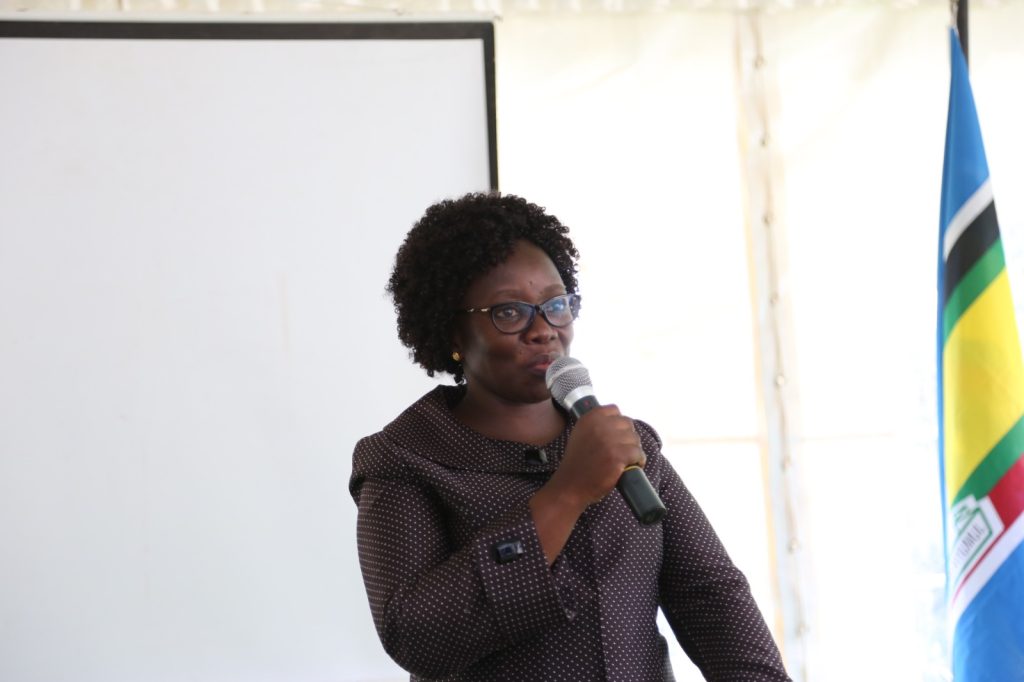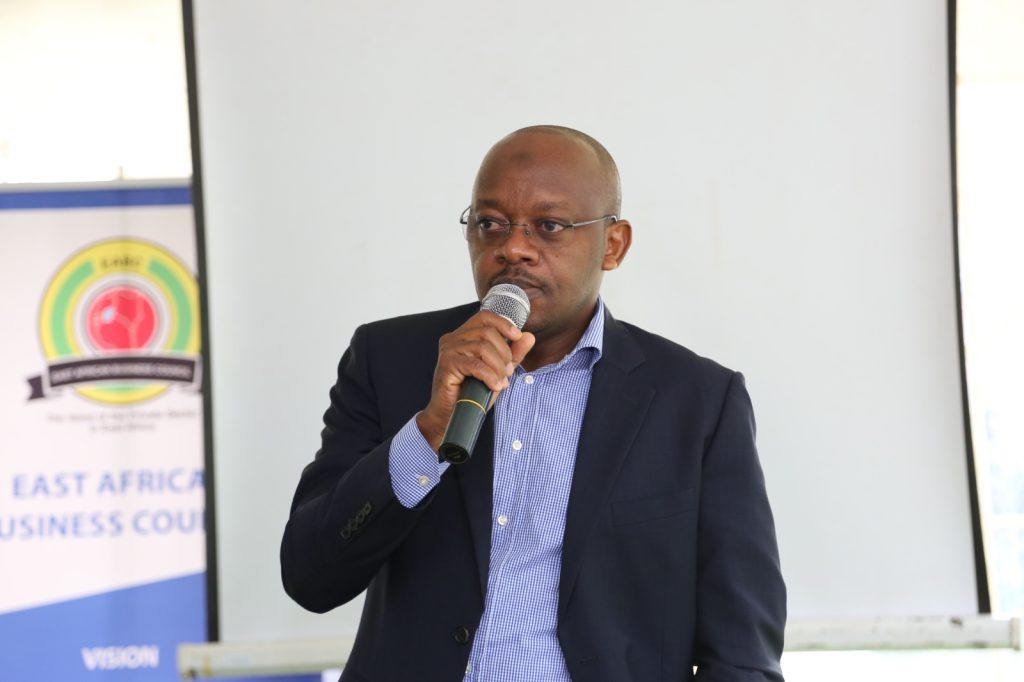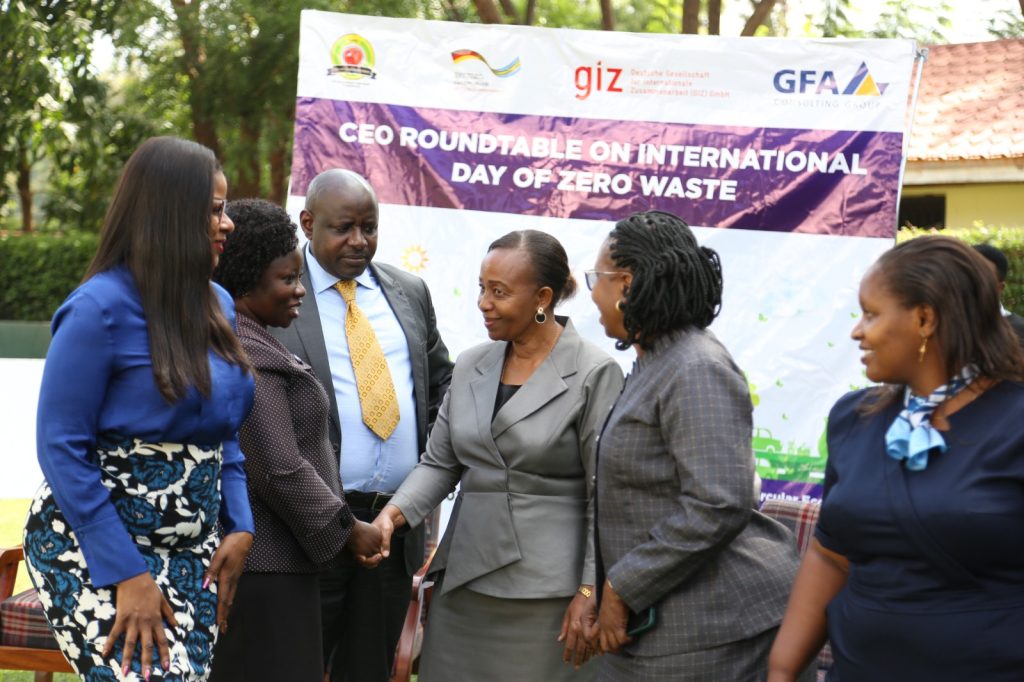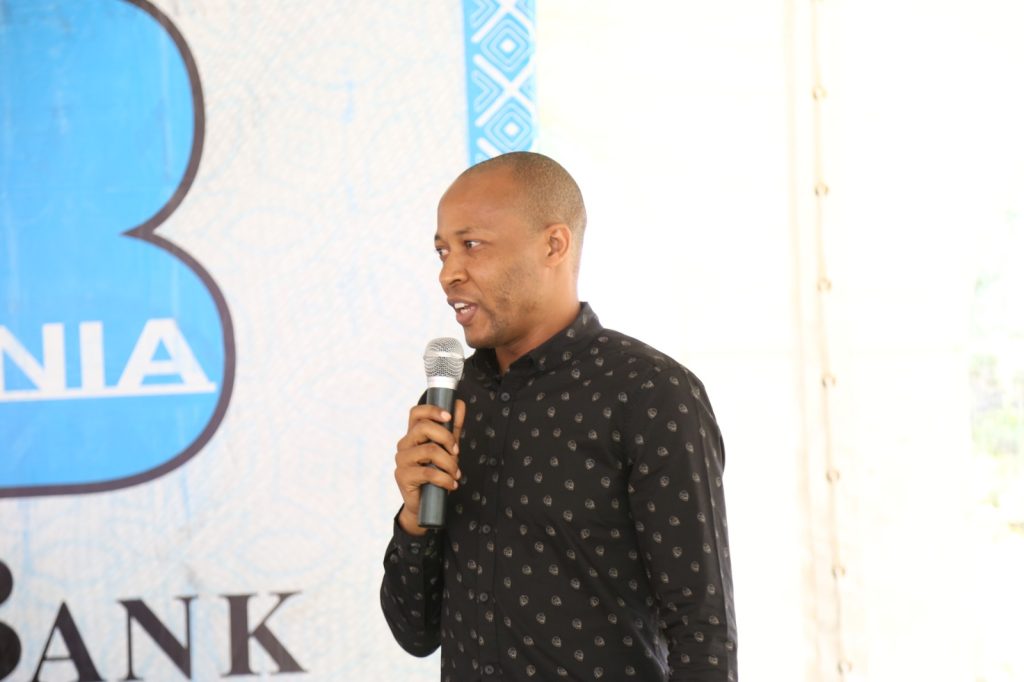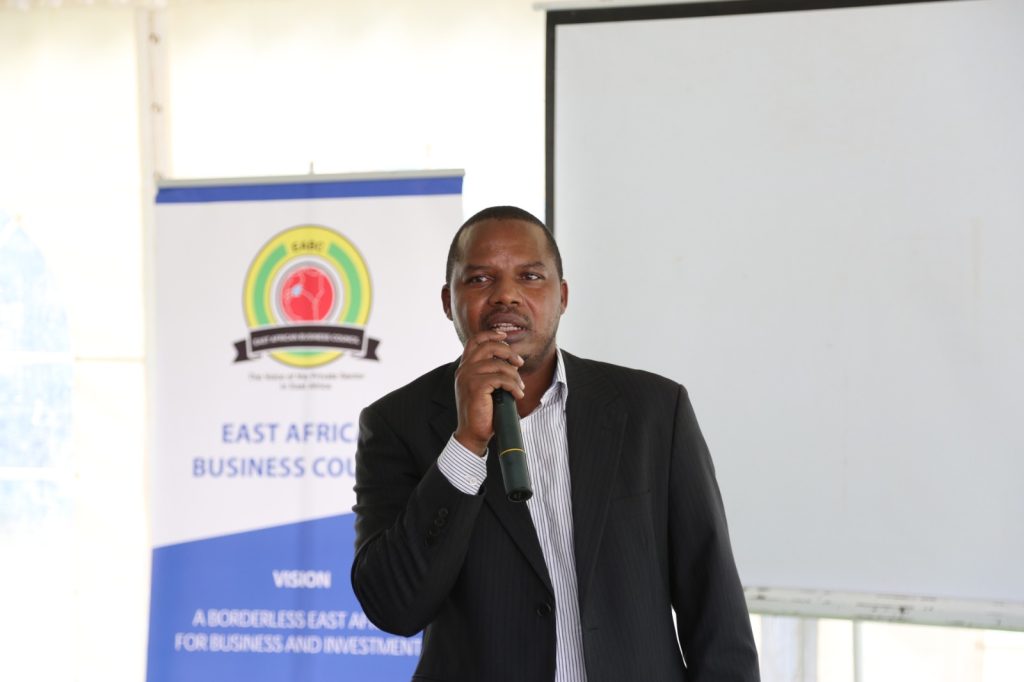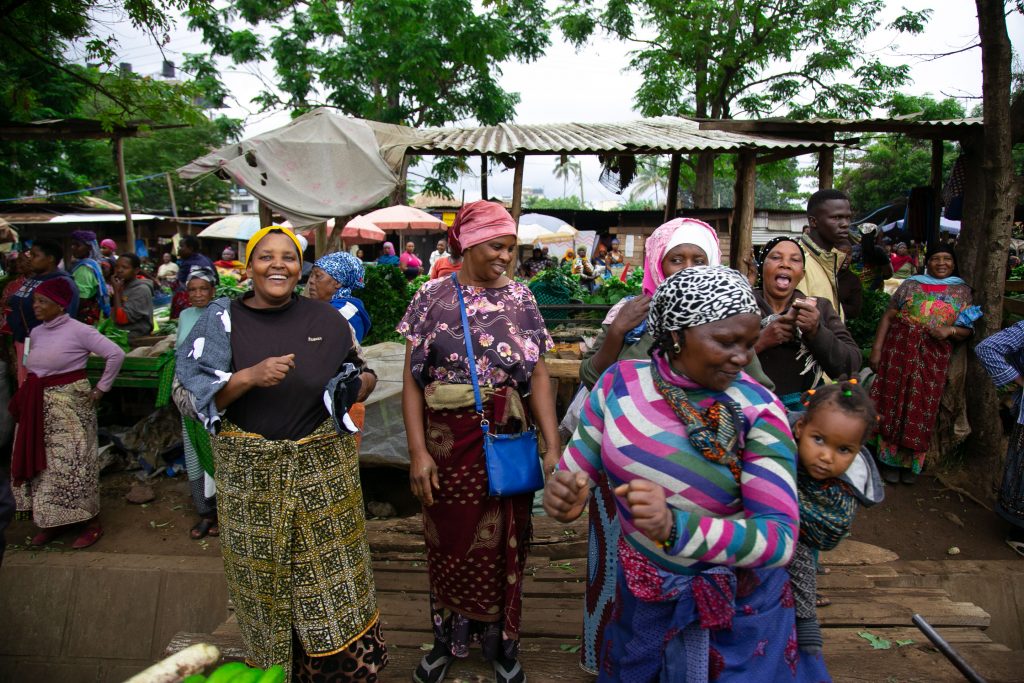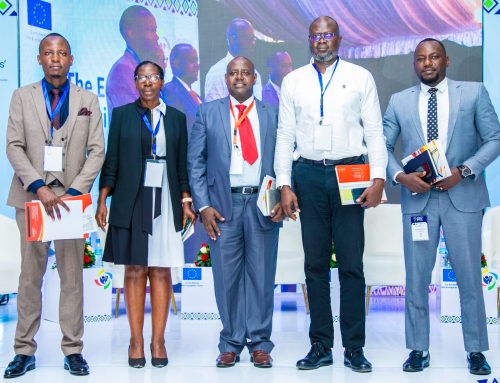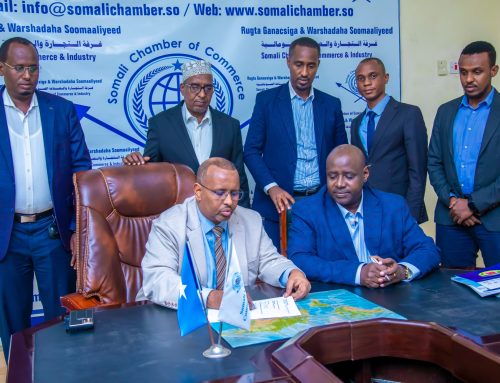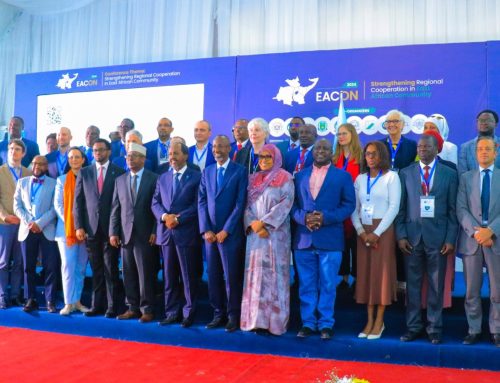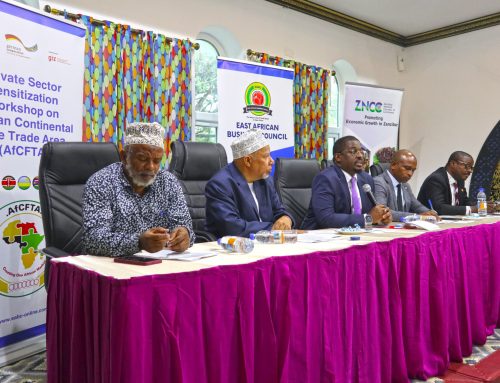Friday, 31st March 2023, Kilimanjaro, Tanzania: – Government officials, captains of industries and partners have forged stronger alliances and strategies to attain zero waste in East Africa.
Speaking at the CEO RoundTable on International Day on Zero Waste, Mr. John Bosco Kalisa, EABC CEO urged all actors to embrace the paradigm of Zero Waste and shift business models from linear to circular economy.
In her opening remarks, the Chief Guest, Hon. Emmanuela Kaganda, District Commissioner of Arumeru said Tanzania has an Investment Guide on Waste Management opportunities and offers incentives. She said investing in waste resources can spur economic and social development in Tanzania and East Africa at large.
The CEO RoundTable was organized under the theme: Promoting Private Sector Investment in Waste Management & Circular Economy to Achieve 2030 Agenda for Sustainable Growth and Development” by East African Business Council (EABC) in partnership with GIZ-GFA, Azania Bank, Salinero Hotel, Coca-Cola Bonite Bottlers, A to Z Textiles Mills, Tanzania Coffee Association and Tanzania Horticulture Association.
Mr. John Patrick Mwesigye, Regional Expert on Pharmaceuticals GIZ-GFA elaborated on the importance of regulations and technical know-how on disposing of pharmaceutical waste to protect bio-diversity.
In her presentation, Ms. Ester Mengi, Serensic Africa elaborated that globally, over 50 million tons of electronics are discarded as waste each year. She stated that there is a vast untapped business opportunity in the re-manufacturing of electronic waste.
Mr. Yahya Mbanka, Finance Manager of Azania Bank said “Azania Bank is devoted to offering financial solutions to SMEs and businesses in the circular economy and waste management sector to boost more jobs for the youthful population.
Eng. Masud Omari shared a case study on how Kilimanjaro International Leather Industries Co. Ltd is recycling leather cuttings and shavings to manufacture key holders and glue.
Eng. Allen Kimabo from Zaidi Recyclers said, “According to United Nations, the Circular economy offers 4.5 trillion in economic opportunities. Globally 300 million tons of plastic and a third of food are thrown away.”
He expounded Dar es Salaam is estimated to generate 4,600 tons of solid waste per day (Study,2019).
In her presentation, Julia Seifert from NetZero said “The circular economy is a model of production and consumption that involves sharing, leasing, reusing, repairing, refurbishing and recycling existing materials and products as long as possible. In this way, the life cycle of products is extended.”
She shared case studies on generative agriculture such as coffee by-products used for mushroom farming and agroforestry and Sugar industries upscaling their business models to produce biogas and replace fossil fuels and reduce carbon emissions.
The RoundTable convened over 50 actors who learn about business models for the circular economy, shared experiences and success stories in waste management solutions, technologies, innovative projects and programs in East Africa and beyond.
Businesses should embrace a circular economy to promote sustainable business models, reduce raw material and waste management costs, demonstrate thought leadership and increase societal acceptance and compliance with national, regional and global treaties.
Zero Waste is an integral part of the circular economy. The circular economy favours activities that preserve value in the form of energy, labour, and materials.

